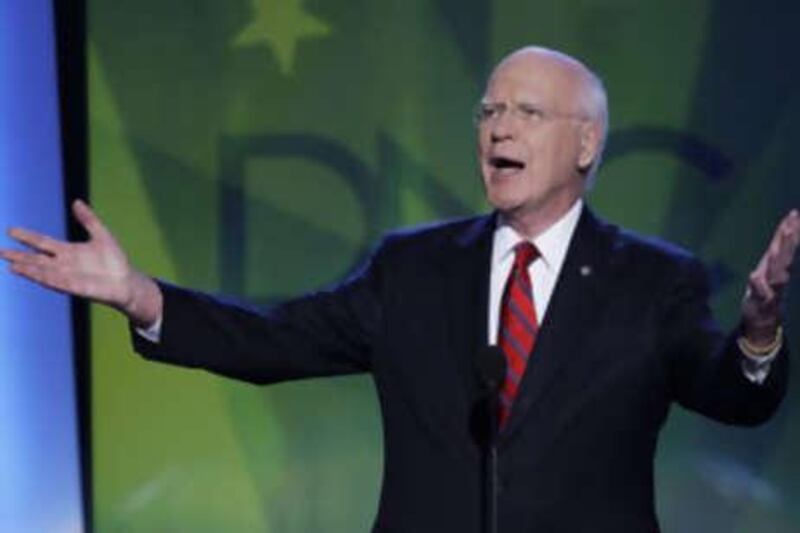In ways subtle and not so subtle, negative stereotypes of Arabs and Muslims continue to play a role in the 2008 presidential contest. On the GOP side, independent groups with strong ties to the Republican Party and the John McCain campaign have been engaging in two distasteful efforts. The first involves the massive distribution of an anti-Muslim "documentary" Obsession: Radical Islam's War Against the West to 28 million households in battleground elections states. While purporting to be "one of the most important films of our time", it is, as one analyst describes it, "an act of incitement against Islam". The DVD was inserted into The New York Times and other major newspapers nationwide.
Who paid for this costly enterprise remains a mystery because the sponsoring group, The Clarion Fund, has not filed its required IRS forms. It has been reported that the group in question was founded by an Israeli-Canadian citizen who has endorsed and supported Mr McCain's presidential bid. During the past year, tens of thousands of copies of Obsession have also been distributed free of charge by Christians United for Israel (the controversial group whose leader endorsed Mr McCain this year), and the National Jewish Republican Coalition (NJRC).
And speaking of the NJRC, the group has been connected to a number of phoney push polls targeting American Jews. Posing as political pollsters, these efforts have sought to plant misinformation, linking Barack Obama to Hamas, alleging that Mr Obama forwarded money to anti-Israel groups and raising questions about Mr Obama being a Muslim. For its part, the Obama campaign continues to make the case for energy independence, describing it as the need to "free the US from Middle East oil".
A recent Obama TV campaign ad attacking Mr McCain for opposing initiatives to develop alternative energy sources begins with a scene showing an Arab watching oil wells pumping in the desert. The narration makes no mention of Arabs or the Middle East, but the association is all too clear.
In the closing days of the Bush administration, the US Department of Justice is making a last-ditch effort to change the way domestic law enforcement agencies do their business. Proposing new guidelines to govern FBI investigations, Michael Mukasey, the attorney general, seeks to undo reforms that were enacted a generation ago. These reforms were designed to correct the notorious abuses that occurred in the 1960s and 1970s when federal law enforcement agencies engaged in a range of secretive and unconstitutional activities designed to infiltrate, spy on, subvert and disrupt anti-war and civil rights movements. According to reports, the proposed new guidelines will remove a number of restraints that currently govern the way the FBI gathers intelligence. They will be able to make free use of ethnic and religious profiles. They will be able to infiltrate groups and gather information without warrants. And they will be able to gather intelligence about and maintain files on US citizens, even where there is no evidence or suspicion of crime.
Russell Feingold, a Democratic senator from Wisconsin, characterised just one worrisome aspect of the proposed guidelines, from what he had been able to glean from a brief look. "So long as the FBI's purpose is detecting a possible national security threat or collecting foreign intelligence, you can pick up any person at random off the street ? Since no reason or suspicion is required, I feel that this raises the possibility of racial profiling."
Realising that these guidelines would be controversial, the attorney general, at one point, announced they would not be implemented until after they were reviewed by relevant Congressional committees and affected communities. But the department of justice has not made the new guidelines public and plans not to make copies available for review until after they have been implemented. This caused Patrick Leahy, a Democratic senator from Vermont and chairman of the Senate Judiciary Committee, to describe the Justice Department's behaviour as being "right out of Joseph Heller's novel Catch-22. [They] can't give us copies of the proposed guidelines for review until they are finished, but, of course, once they are finished they are no longer ? subject to change."
After fumbling the question from Charlie Gibson of ABC News about the "Bush Doctrine", a better-briefed GOP vice presidential nominee, Sarah Palin, got a second chance on Sept 19. What follows is her exchange with the friendlier Sean Hannity of FOX News: Mr Hannity: What do you view - and I know this came up in your interview with Charlie Gibson, as it relates to the Bush Doctrine - what do you view as the Bush Doctrine and what do you view as America's role in the world? What is our role as a country, as it relates to national security?
Mrs Palin: That's a great question and being an optimist I see our role in the world as one of - being a force for good and one of being the leader of the world when it comes to the values that - it seems that just humankind embraces the values that encompass life and liberty and the pursuit of happiness. And that's not just in America, that is in our world. And America is in a position, because we care for so many people, to be able to lead and to be able to have a strong diplomacy and a strong military.
Also at the same time to defend not only our freedoms but, to help these rising, smaller democratic countries that are just - you know, they're putting themselves on the map right now, and they're going to be looking to America as that leader. We being used as a force for good is how I see our country. jzogby@thenational.ae







